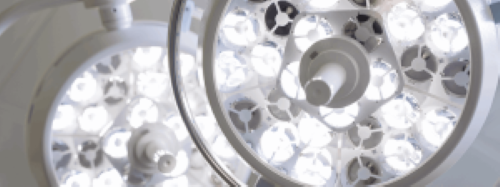Medtech innovation is going digital but is patent protection keeping up?
 The medtech sector has remained at the forefront of innovation during the pandemic with a multitude of new technologies being developed to help tackle the coronavirus crisis, from modified ventilators to lateral flow test kits. This can be seen in the data recently published by the European Patent Office which indicates that there has been an upsurge in patent filing activity within the medtech field. The European Patent Office’s Patent Index 2020 shows that there have been 14,295 medical technology patent filings at the European Patent Office in 2020, which is up 2.6% from the previous year. Interestingly, although the medical technology field leads the way by volume of European patent filings in 2020, it has been the neighbouring pharmaceutical and biotechnology fields that have seen the strongest growth in European patent filings with 8,589 filings (up 10.2% from 2019) and 7,246 filings (up 6.3% from 2019) respectively. Much of this growth is likely to have been crisis-driven, as financial investment has been committed to these sectors and innovators have developed new therapies targeting the health issues which have followed in the wake of the virus. As we slowly move towards post-pandemic times, those within the medtech community are predicting that this upward trajectory in innovation will continue as the medtech sector undergoes a digital transformation.
The medtech sector has remained at the forefront of innovation during the pandemic with a multitude of new technologies being developed to help tackle the coronavirus crisis, from modified ventilators to lateral flow test kits. This can be seen in the data recently published by the European Patent Office which indicates that there has been an upsurge in patent filing activity within the medtech field. The European Patent Office’s Patent Index 2020 shows that there have been 14,295 medical technology patent filings at the European Patent Office in 2020, which is up 2.6% from the previous year. Interestingly, although the medical technology field leads the way by volume of European patent filings in 2020, it has been the neighbouring pharmaceutical and biotechnology fields that have seen the strongest growth in European patent filings with 8,589 filings (up 10.2% from 2019) and 7,246 filings (up 6.3% from 2019) respectively. Much of this growth is likely to have been crisis-driven, as financial investment has been committed to these sectors and innovators have developed new therapies targeting the health issues which have followed in the wake of the virus. As we slowly move towards post-pandemic times, those within the medtech community are predicting that this upward trajectory in innovation will continue as the medtech sector undergoes a digital transformation.Like many sectors, the digital space represents a key growth area with many savvy medtech players seeing digitalisation as the next phase in delivering medical technologies in a safe, efficient and patient-friendly way. Patent filings in the medtech field have traditionally been clustered around mechanical, electronic and material based innovations. These include prostheses, surgical tools and robotics, pacemakers, inhalers and wound care technologies, to name a few. Although these traditional medical technologies will likely continue to drive much of the research and development efforts in the sector, the integration of emerging digital innovations is now set to play an important role. Digital innovations are being exploited to enhance the utility of the well established device based technologies and act as stand alone medical tools in their own right.
For many years the design and commercialisation of medical technologies has led to the creation of large volumes of medical data that are potentially important in developing new solutions for the prevention, diagnosis, treatment, monitoring and management of medical conditions. Software-based digital technologies, such as artificial intelligence, are now being used to analyse the data and are revolutionising the way in which medtech innovators are solving patient problems.
Many medtech digital innovations involve software-based solutions, but there is a common misconception that such technologies do not qualify for patent protection. Whilst there are certain restrictions on what may be patented, software innovations that provide a technical effect are in fact eligible for patent protection in the UK and Europe. In practice, this means that digital innovations, such as software designed to control traditional medical devices, or to assist in the diagnosis and treatment of a disease, are likely to be eligible for patent protection. Patent filings in the artificial intelligence area have indeed sky-rocketed in recent years. A study by Marks & Clerk looking at the European Patent Office’s filing statistics for artificial intelligence related inventions over the last 20 years shows the “Life & Medical Science” sector leading the way in artificial intelligence patent filings and accounting for 16% of the artificial intelligence patent publications over the period. Medtech innovators entering the digital space should therefore ensure that patent protection is considered prior to commercialisation.
As with the conventional medical device based developments of years gone by, patents can play a pivotal role in strategically protecting software-based innovations to underpin market success. As the world gradually moves into a post-pandemic era, the medtech sector shows no sign of slowing down. With the current digital transformation fuelling growth, the sector looks set to continue to gain momentum and innovators should ensure that their patent protection strategies keep up with the pace.
Author: Anis Naidu, Associate, Marks & Clerk
0161 233 5800
anaidu@marks-clerk.com





















